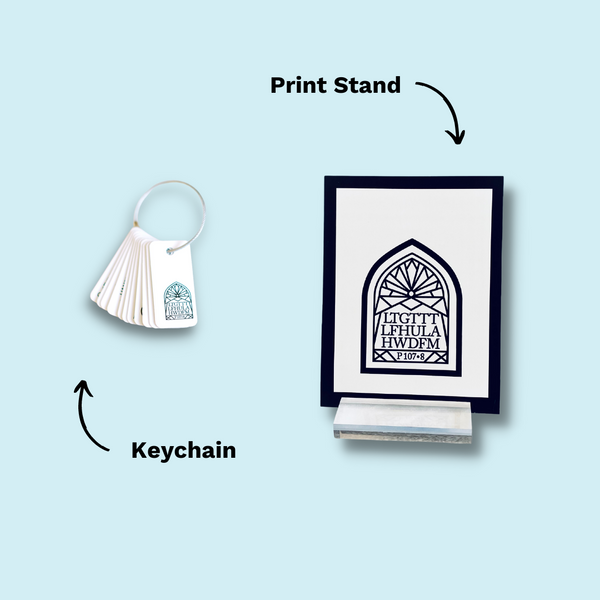“For even the Son of Man did not come to be served, but to serve, and to give his life as a ransom for many.” — Mark 10:45
This is the best news you’ll ever hear:
Jesus came to serve you and to save you. He didn’t come because he needed to be served by you, like so many other gods, philosophies, and systems. He wasn’t in need of anything you could do for him, because (like we learned last month) he doesn’t need anything. He came not because he needed something from you but to give everything to you. And that same Jesus, who is holy and worthy of being served, came humbly to serve the people he himself created and sustains—people who know they’re helpless to live as they should, people who will reach out to him and rely on him to serve them and save them. He came to wash you clean, to make you new, to give you life, and every good thing—most especially his love. This is the gospel of Jesus Christ—the best news for every honest sinner who would humbly receive it.
But do you want it?
I know it might seem like a silly question after giving you the “best news ever.” Who wouldn’t want that?! I’m only asking because it’s the underlying question that Jesus is asking in the passage where we find our verse. Consequently, it’s the question he’s asking us: “Do you really want me, or do you want something else more?” In order to find those answers (both in the text and for ourselves), we’re going to briefly look at the three interactions Jesus has with people who either want him most or something else. (Want a more in-depth explanation? Subscribe to our podcast so you won’t miss this Wednesday’s Deep Dive into the verse.)
Jesus or money?
In the first interaction from the book of Mark we’ll look at today, we see the struggle in our human hearts between Jesus and financial security. A rich young man comes to Jesus asking what he must do to inherit eternal life. To this, Jesus says, “You know the commandments” (Mark 10:19), and he proceeds to list some out. The young man says, “all these I have kept since I was a boy” (Mark 10:20). Jesus then looks on him with love and exposes what this young man cannot see in himself: “‘One thing you lack,’ he said. ’Go, sell everything you have and give to the poor, and you will have treasure in heaven. Then come, follow me’” (Mark 10:21). But, the young man wants his financial security more than he wants Jesus, so he goes away sad. The pull of wealth is so strong on our hearts, isn’t it? Jesus goes on to tell his disciples that it’s easier for a camel to go through the eye of a needle than it is for a rich person to be saved. His disciples wonder, “Who then can be saved?” (Mark 10:26). Jesus tells them it’s impossible, but with God it is possible. But how? He tells them (and us) in his next interaction.
Jesus or prestige?
In the next interaction, Jesus is pictured on his way to Jerusalem with his 12 disciples. He has just explicitly predicted his impending death and resurrection when James and John come to him with a request. They want the most prestigious positions in his coming kingdom (on his right and left hand). And when the other disciples hear about it, they are steaming-hot mad. Why? They want that prestige for themselves. They want other people to look up to them and serve them. They feel entitled to those places of glory, like they deserve it after everything they’ve done to serve Jesus.
But Jesus doesn’t offer them prestige in return for their service, instead he explains that he didn’t come to be served, but to serve them. He doesn’t need their service, but they desperately need his. It is impossible for them to save themselves, but he has a solution, he will work the impossible on their behalf. Jesus says, “For even the Son of Man did not come to be served, but to serve, and to give his life as a ransom for many” (Mark 10:45).
Jesus lived the perfect life and gave his life as a ransom (or payment) for the sins of the many. We deserve death, but he offers us his life. Moreover, he deserves our service, but instead he served us, though we were undeserving and disobedient. This is the best message, the very thing we need. But how do we receive it? We’ll find out in the next interaction.
Jesus or self-sufficiency?
In the final interaction, we meet Bartimaeus, a blind beggar. Unlike the rich man who clings to his wealth or the disciples who barter for prestige, Bartimaeus has nothing. He comes to Jesus in faith asking him to do what he knows only Jesus can do: restore his sight. Did you get that? He comes in faith, asking Jesus to serve him—the very thing Jesus has come to do. So Jesus heals him, telling him, “Your faith has healed you” (Mark 10:52). And Bartimaeus, this blind nobody, starts his faith journey, following the one who served him. This is how we come to Jesus. We come empty handed, not holding tight to what we already have, or grasping for what he can give. No, we come to Jesus for Jesus. He is our greatest need, and he is willing to give us precisely what we need: himself.
In light of all of that I have to ask: Who are you most like?
- Are you living like the rich young man—like there’s something more important than Jesus? What do you need to give up or count on less?
- Or are you living like the disciples—like Jesus needs your help, and maybe he owes you something for it? Where are you specifically trying to earn his favor?
- Or are you living like Bartimaeus—like you need Jesus, like you could never do it on your own? What is one way you can start living like Jesus is precisely what you need?




